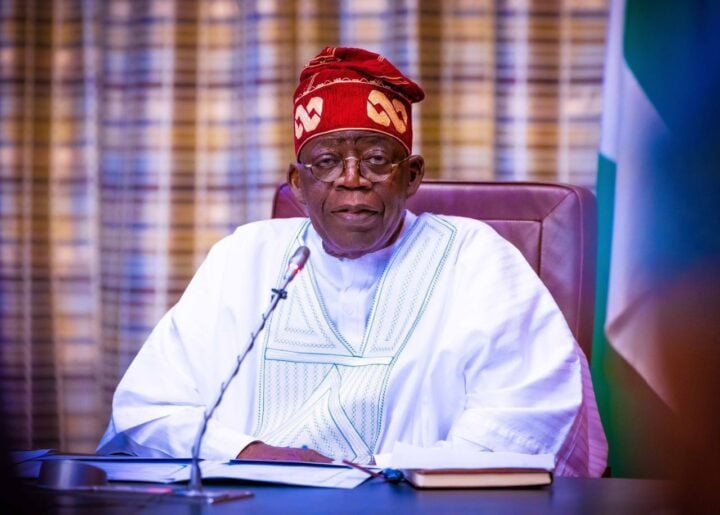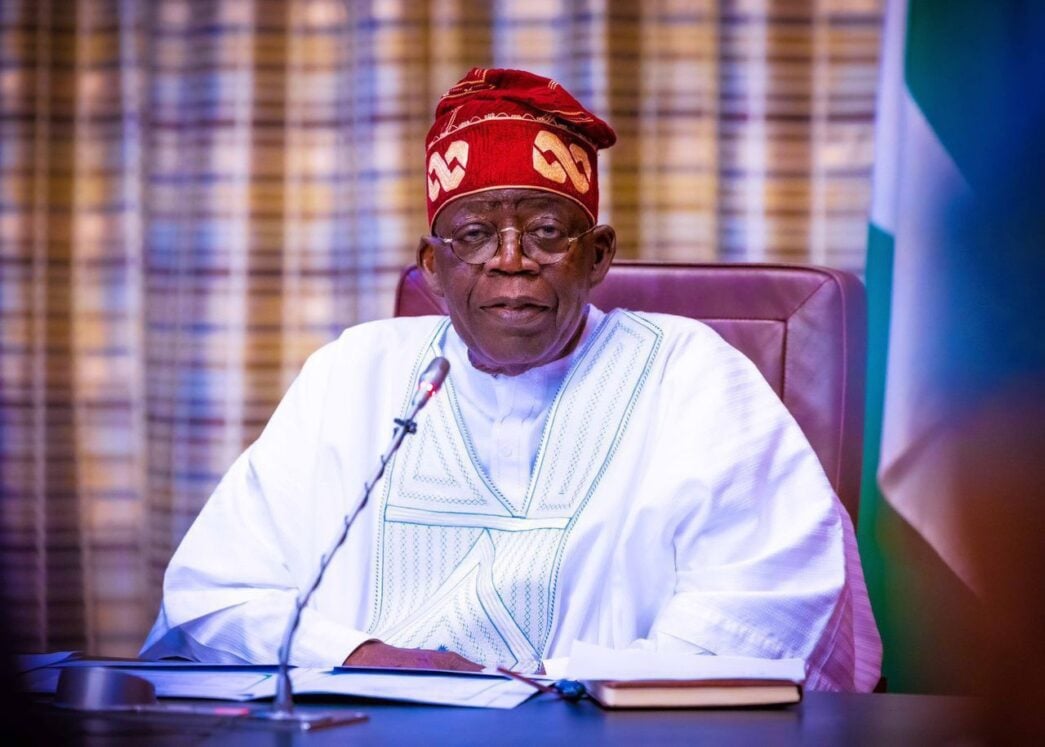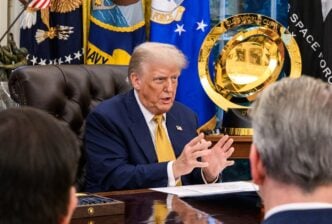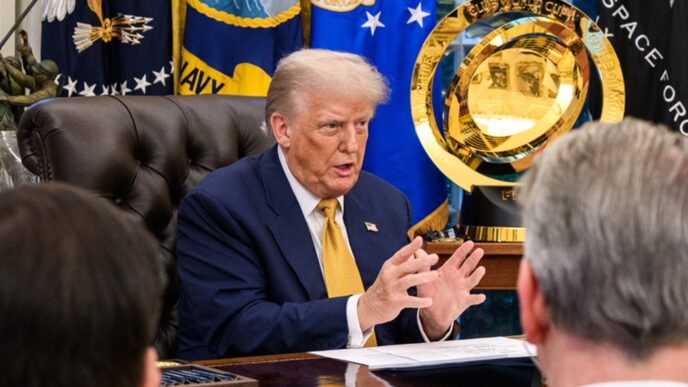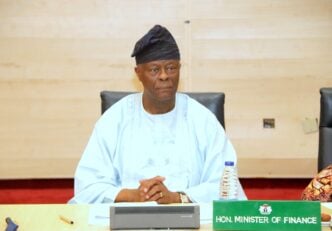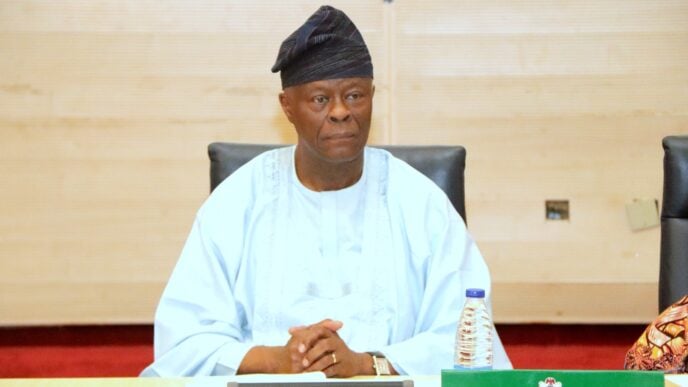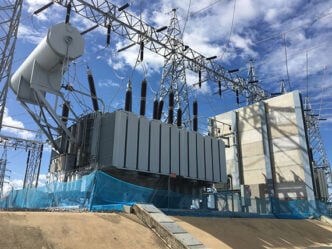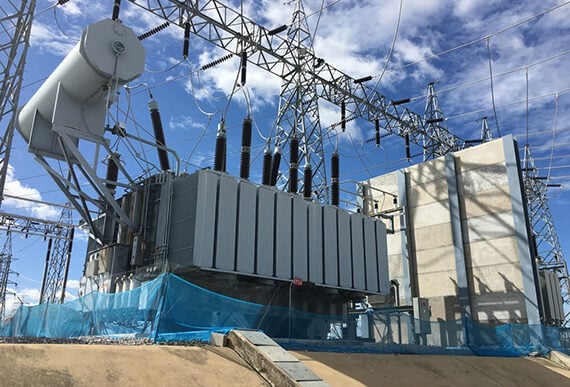President Bola Tinubu
President Bola Tinubu has directed the ministry of finance to review all deductions and revenue retention practices by key revenue-generating agencies.
The directive is said to be part of efforts to free up funds for investment and accelerate economic growth.
Wale Edun, minister of finance and coordinating minister of the economy, announced the development on Wednesday while briefing journalists after the federal executive council (FEC), meeting presided over by Tinubu in Abuja.
Edun said the review will cover the Federal Inland Revenue Service (FIRS), Nigeria Customs Service (NCS), Nigerian Upstream Petroleum Regulatory Commission (NUPRC), Nigerian Maritime Administration and Safety Agency (NIMASA), and the Nigerian National Petroleum Company (NNPC) Limited.
Advertisement
Currently, the FIRS receives 4 percent of all non-oil revenues, while the NUPRC gets 4 percent of royalties, rents, and other revenues from the oil and gas sector.
In the same vein, the NCS keeps 7 percent of revenue from duties and levies. This funding model is known as the cost of collection.
According to Agora Policy, following the implementation of the Petroleum Industry Act (PIA), the national oil firm has been deducting 60 percent of oil and gas profit from production sharing contracts (PSCs).
Advertisement
The amount comprises a 30 percent management fee, and an additional 30 percent for the frontier exploration fund.
Speaking to journalists, Edun said Tinubu specifically called for a reassessment of NNPC’s 30 percent management fee and 30 percent frontier exploration deduction under the PIA.
According to the minister, the directive is aimed at “optimising public savings, enhancing spending efficiency, and freeing up more resources to finance growth”.
He quoted the president as commending the agencies for implementing “bold and difficult reforms” that have dismantled economic distortions, restored policy credibility, enhanced resilience, and strengthened investor confidence.
Advertisement
He said the reforms have created a transparent, competitive business environment that now positions Nigeria to attract more domestic and foreign investment in critical sectors such as infrastructure, oil and gas, health, and manufactured exports.
The minister said Tinubu reaffirmed his administration’s target of building a $1 trillion economy by 2030, which he said would require at least 7 percent annual economic growth from 2027.
Describing the goal as “not just an economic target but a moral imperative”, he stressed that higher growth is essential to sustainably tackling poverty.
Edun said the president also referenced the July 2025 IMF Article IV report, which he said validates Nigeria’s economic trajectory and highlights the need for investment-led growth.
Advertisement
He said Tinubu further drew attention to the ‘Renewed Hope Ward Development Programme’, a grassroots poverty-reduction initiative covering all 8,809 wards across the country.
The scheme, he said, would empower economically active individuals through partnerships with state governments and the private sector.
Advertisement
‘PUBLIC INVESTMENT ACCOUNTS FOR JUST 5% OF GDP’
Tinubu, according to the minister, noted that public investment accounts for just 5 percent of the gross domestic product (GDP).
Advertisement
This, he said, is largely due to low public savings, stressing the importance of “maximising every available naira” to sustain momentum amid global liquidity constraints.
The president was said to have instructed the economic management team, led by Edun, to submit actionable recommendations to the FEC on reviewing all deductions from the federation account, including collection costs and charges by the listed agencies.
Advertisement
Speaking generally about the economy, Edun said macroeconomic indicators are improving, with a stabilising exchange rate, declining inflation, rising revenues, and debt-to-GDP ratios within target levels.
He added that “Nigeria is now viewed as an attractive investment destination across multiple sectors, supported by a competitive exchange rate”.
Edun said savings form the foundation for investment, whether from domestic sources or foreign inflows.
The minister said the president’s directive to urgently increase public sector savings will involve reviewing deductions and revenue retention policies to free up more funds for investment.
In 2024, the federal government had issued a circular directing “automatic” 50 percent remittance of the total revenue of all its self-funded enterprises.
Prior to the policy, self-funded agencies, also called “Super Agencies”, were allowed to claim up to 50 percent of their revenue as expenditure and keep 20 percent of the balance as “operating surplus” — the excess of revenue over expenditure.
